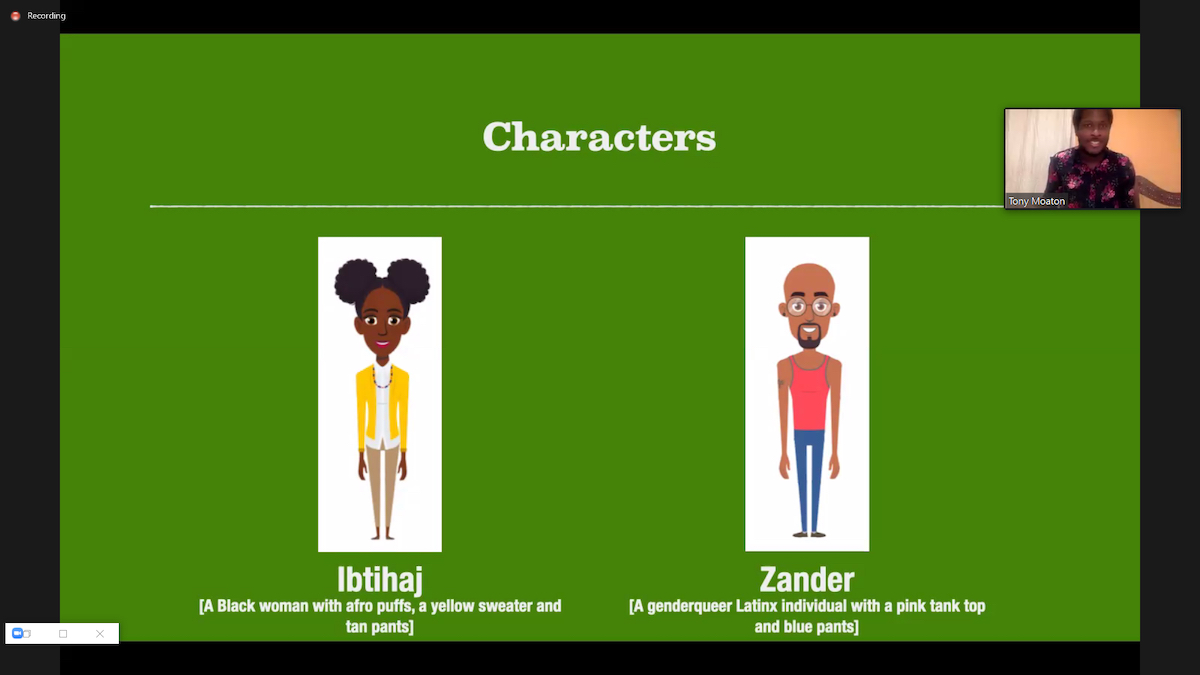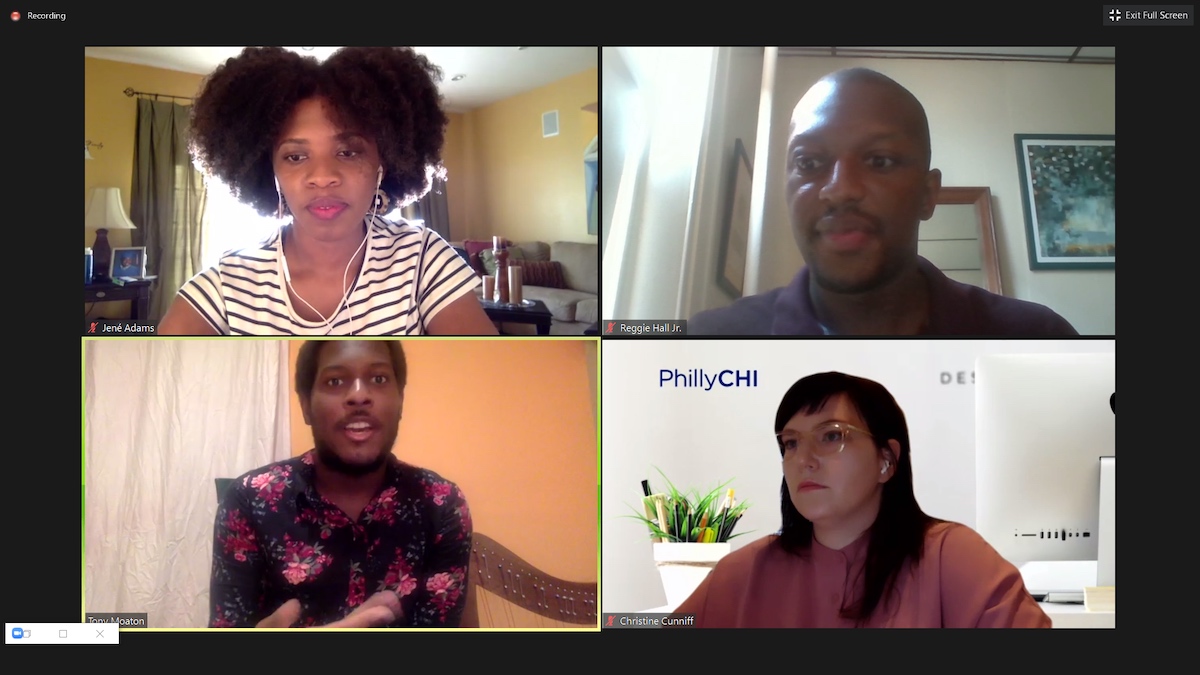Only 3% of UX designers are Black. That means a whole lot of perspectives are missing from the creation of the products we consume. (See: David Dylan Thomas’ book, “Design for Cognitive Bias.”)
As part of its effort to “amplify Black voices in the Philly UX community and beyond,” meetup group PhillyCHI hosted three Black UX designers this week to discuss their creative processes and tips for other designer pros.
Philadelphia Inquirer graphic designer Jené Adams, UX designer Tony Moatan and UX designer and researcher Reggie Hall Jr. shared their screens with the virtual audience to show off recent projects and talk through their processes.
Adams used her design work for the Inquirer’s Diversity and Inclusion Gala as a case study for the challenges that come with converting digital design work to traditional newsprint.
“I get a little bit of insight into the print world and digital world,” she said. “It’s also a challenge because I have to see how I can make the branding across platforms look the way it’s supposed to for [both].”
Adams explained that a significant difference between digital platforms and newsprint is that of color scales. Digital allows more space for designers to apply shadows to their work, whereas the grayscale palette of newsprint limits shadowing options.
She and her colleagues used the online platform CEROS to create a microsite that helped her lay out how her project would look: “We were able to prototype and then our products team coded a microsite to make it work,” she said.
Moatan’s passion for improvisation and experience as a graduate student studying the arts were the catalyst for his UX project: an app for people with no experience in art.
As a graduate student at the University of the Arts, Moatan frequently met other students who had become hampered by the feedback process involved in developing artistic talent.
“In theater, we didn’t think about audience in the way you do in UX,” said the lifelong theatre and arts enthusiast. “Coming back to school, I was at a crossroads. Talking to other people in grad school for art, it was about needing to be vulnerable and getting bad feedback. As a queer Black person, I’ve learned how to compartmentalize and take this feedback and recognized everyone doesn’t want to or need to do that.”
Moatan enrolled in a Springboard bootcamp to study UX/UI design and used his capstone project to discuss issues regarding theater space, graduate school academic space and art education through UX strategy.
To envision an app that could incorporate those, he worked from the understanding that improvisation equals divergent thinking, mental flexibility and higher quality of life. His app would speak to people not always recognized by academic spaces and the arts and answer his own question of how designers could teach users how to think of art and what it meant to step away from elitism.

For Hall, creating forms to help non-English-speaking Philadelphians receive city services was an experience that involved working closely with the people who would benefit from them in order to achieve the best results possible.
In 2018, Philly’s Office of Immigrants Affairs found that while city policies mandated that a form exist where people could submit formal complaints to receive services, those who don’t speak English still couldn’t easily access those services. Something better was needed.
Hall said that empathy was a key part of his and his six colleague’s design process. Using the “walk a mile” immersion exercise, he went to the Municipal Services Building and look for resources in the way that a non-English-speaking person would. He found that the process was incredibly difficult and that helped form the foundation of his research.
After developing prototypes of forms with his team, Hall found the experience of watching non-English speakers working with them to be invaluable.
“It was important to see people fill out the form in person,” he said. “My approach is to emphasize there is not a right or wrong answer. It’s about understanding people’s thought processes, and understanding what is working well and why.”







